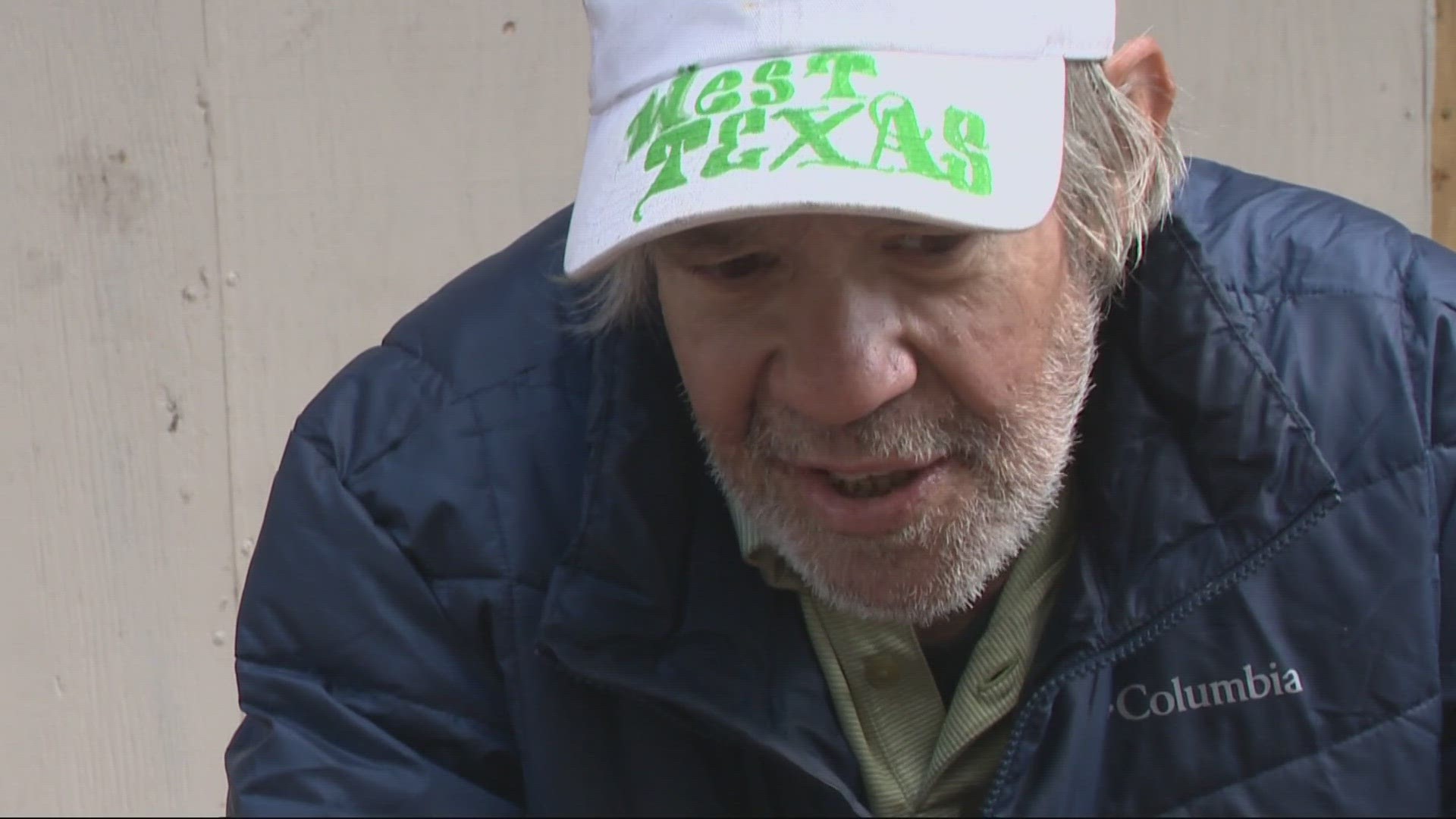PORTLAND, Ore. — Beyond the tents and boarded windows that shape much of downtown Portland are many homeless people using hard drugs as a cry for help.
On Monday morning near the corner of Southwest 4th Avenue and Washington Street, people huddled under large blankets and passed around scraps of tin foil and plastic straws, each taking turns smoking fentanyl, the highly addictive narcotic that’s ravaged the city and killed dozens.
“It’s a necessity to help them with their pain. It’s emotional pain,” said William, who’s homeless and 61 years old. He smokes fentanyl ten times a day to numb a physical pain after he was hit by a car and hurt his leg.
“Doctors won’t give me anything. They’ll give me Tylenol. That doesn’t do much,” he said.
Under Measure 110, which Oregon voters passed in 2020, using a certain amounts of hard drugs like fentanyl is not a criminal offense. Instead, people like William are given $100 citations and a number to call for treatment.
William recently received one of these tickets, and has since taped it to the inside of his tent — though police say that kind of response is rare.
“Generally, people are like 'thanks but no thanks,' quite a few times people will just throw the citation away right in front of us,” said Portland bike squad officer Whitney Anderson.
“A lot of people are trying to be more cautious about it because they’re getting confused whether it’s legal or not to smoke out here,” added another homeless man using drugs downtown.
Portland police are also responding to an increase in deadly fentanyl overdoses. Mayor Ted Wheeler’s office confirmed with KGW that he is now considering outlawing hard drug use in public and introducing criminal penalties — something many Portlanders have been asking for.
“Yeah, they need to go to jail or rehab — either way they have to, 'cause they’re going to die,” said one man who works downtown and sees the crisis every day.
Wheeler’s office is expected to release more information later this week. KGW has reached out to the judicial system and local law enforcement to ask how such an ordinance would work alongside Measure 110. This story will be updated once we hear back.
In Old Town, outreach workers like Clarence, who lived on the street for three years, believe criminalizing drug use could save lives.
"They should have never taken that away," said Clarence. "When you gave the people the right to do whatever they want to … I think that was hideous to me."
But for those deep in their addiction, they see it differently.
"It shouldn’t be a crime. We’re not hurting anybody," said William.
Wheeler isn’t alone in pushing back on Measure 110. Clackamas County commissioners recently decided to hold an advisory vote in November asking their voters if they would like to see Measure 110 modified or overturned.
Correction: A previous version of the article quoted a person who claimed they worked for the nonprofit Defense Fund PDX and said they were in favor of criminalizing drug use. A spokesperson for the nonprofit reached out to KGW and clarified that their stance is "they do not believe drug use should be criminalized and we support people who are drug users."

